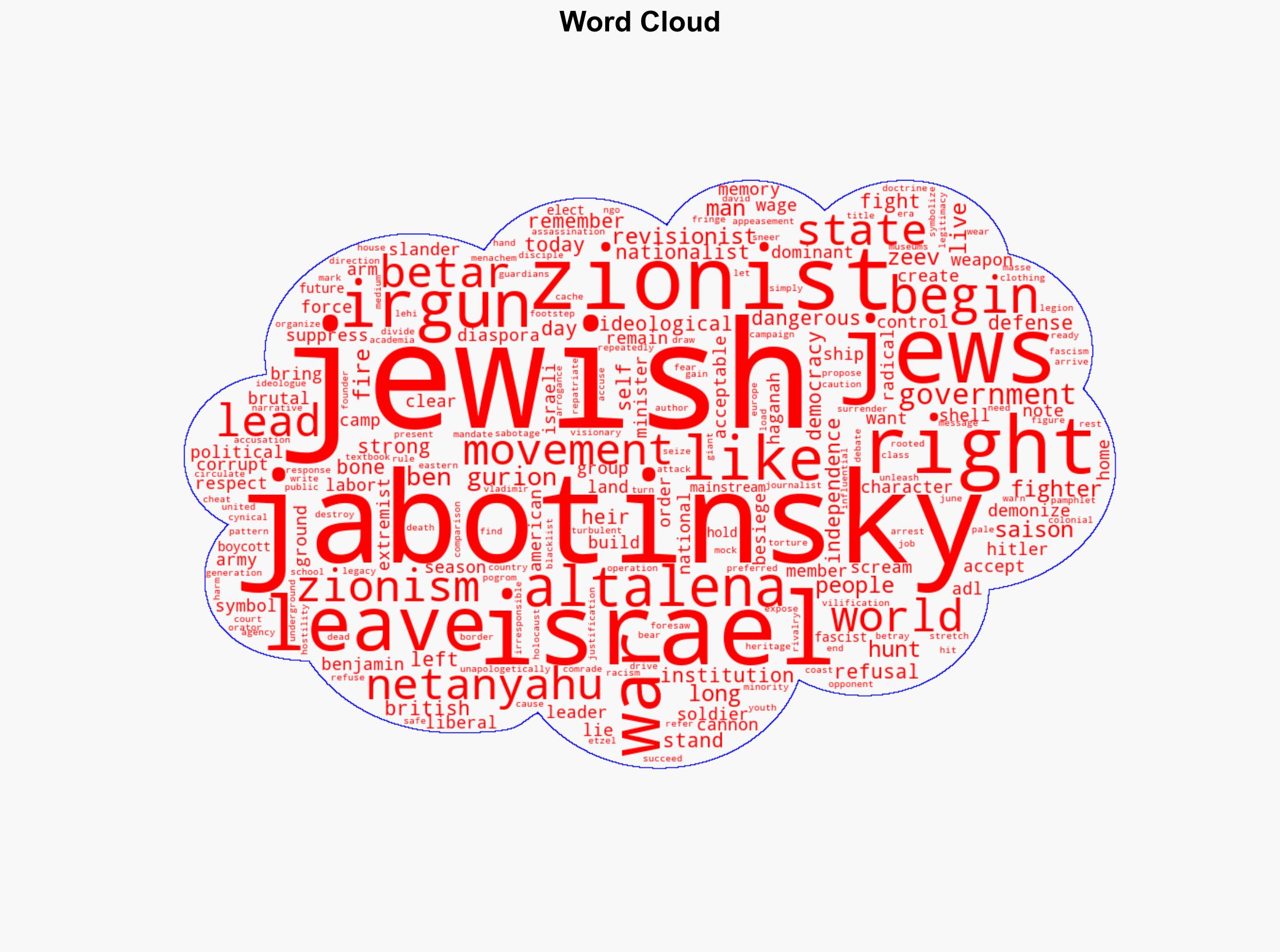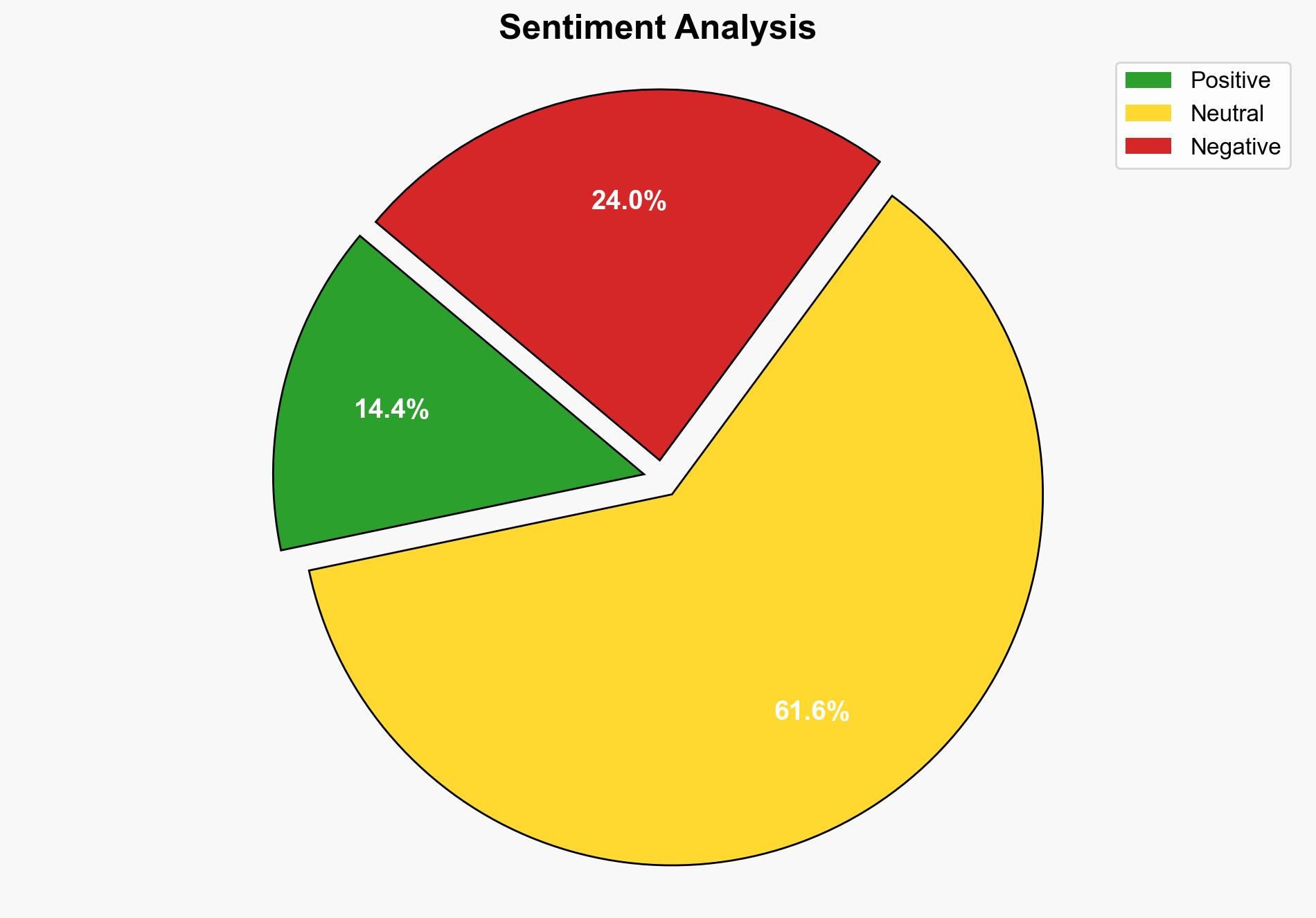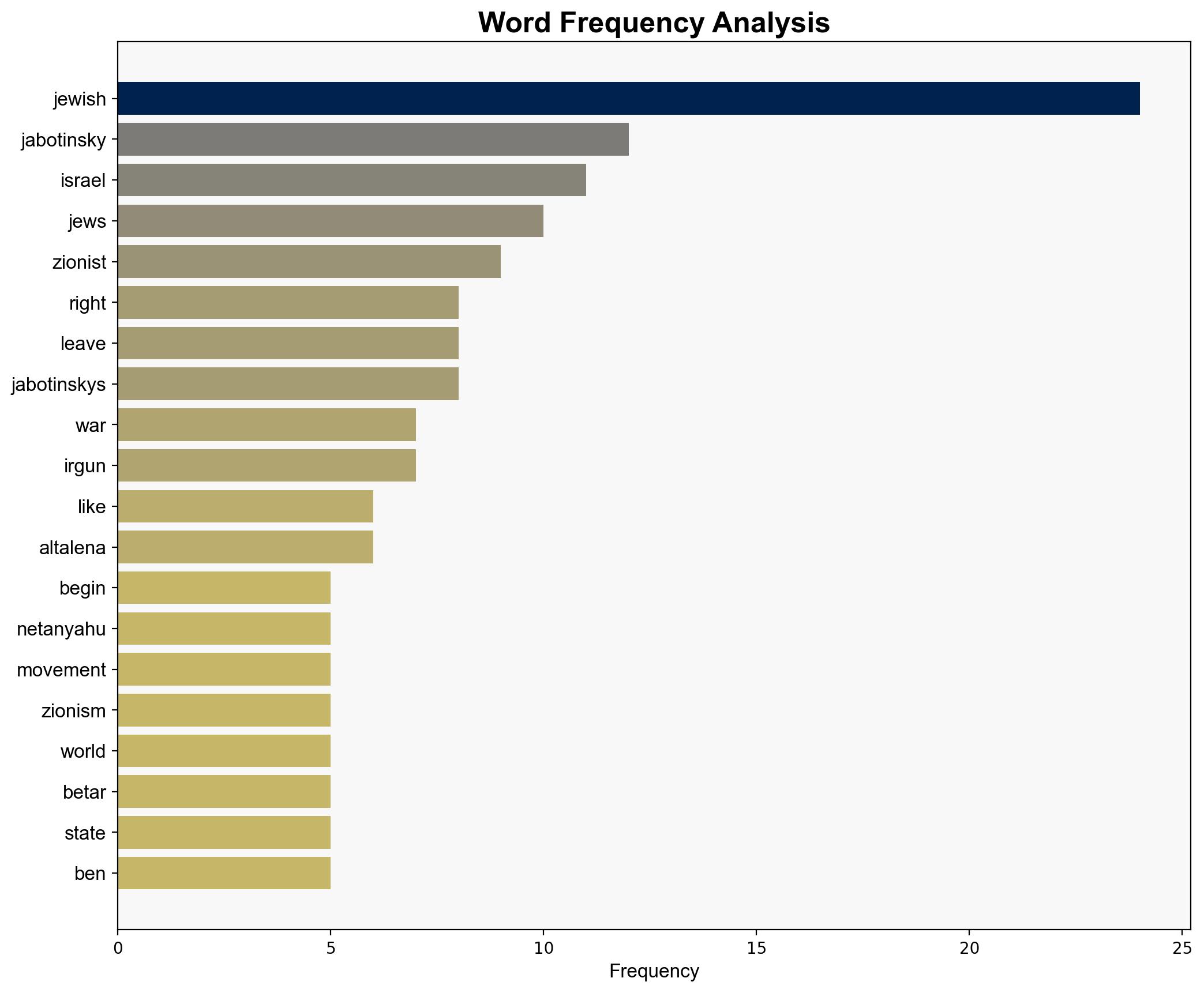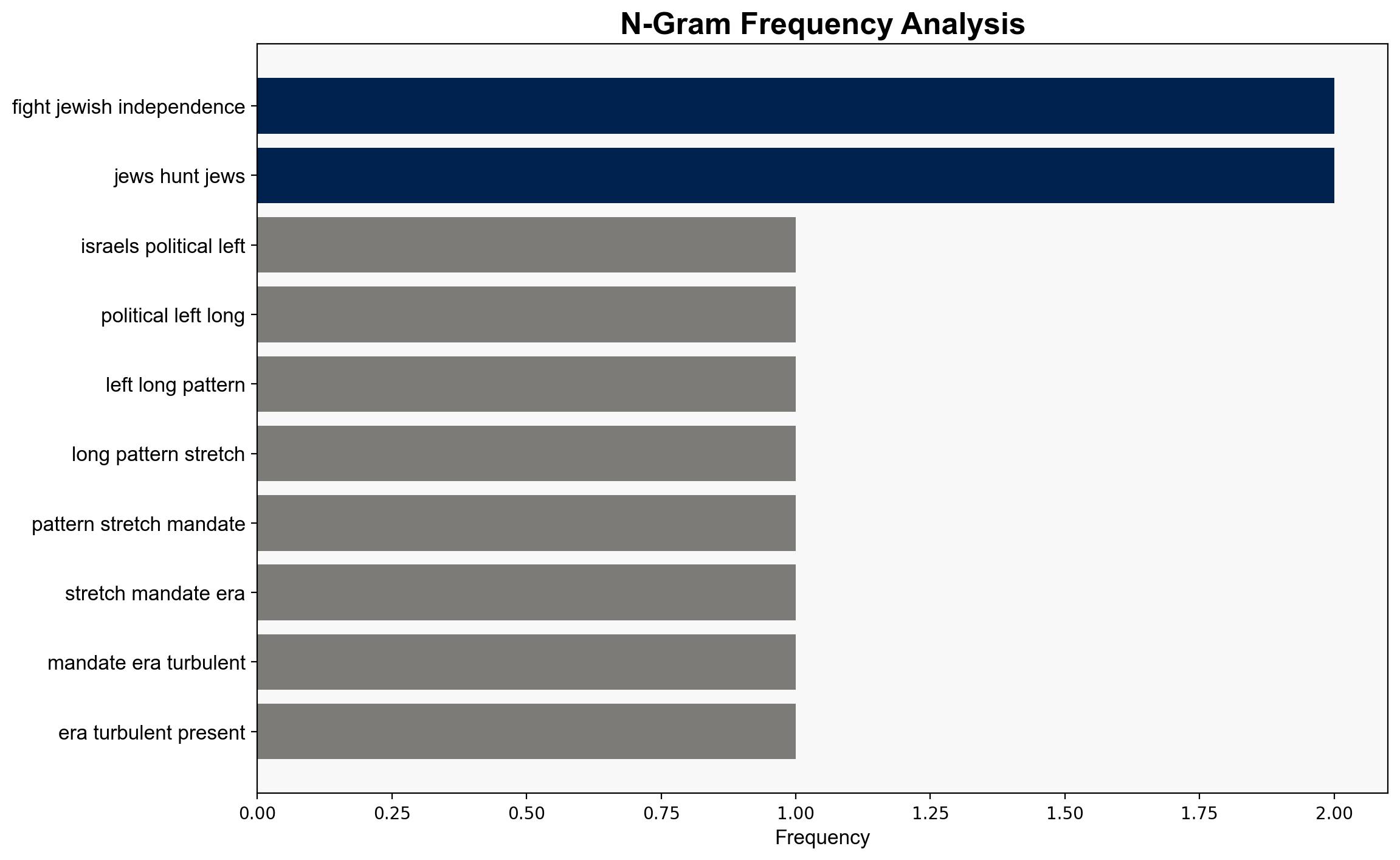They hated Jabotinsky then They hate Netanyahu now – Israelnationalnews.com
Published on: 2025-09-29
Intelligence Report: They hated Jabotinsky then They hate Netanyahu now – Israelnationalnews.com
1. BLUF (Bottom Line Up Front)
The analysis suggests a high-confidence hypothesis that the political tensions and ideological conflicts within Israel, historically rooted in the opposition to figures like Ze’ev Jabotinsky, continue to manifest in contemporary politics with figures like Benjamin Netanyahu. The recommended action is to foster dialogue and reconciliation efforts to mitigate internal divisions that could weaken national cohesion and security.
2. Competing Hypotheses
1. **Hypothesis A**: The current political animosity towards Netanyahu is a continuation of historical ideological conflicts within Zionism, reflecting deep-seated divisions that have persisted since the time of Jabotinsky.
2. **Hypothesis B**: The opposition to Netanyahu is primarily driven by contemporary political dynamics and personal leadership style, rather than historical ideological conflicts.
Using the Analysis of Competing Hypotheses (ACH) 2.0, Hypothesis A is better supported due to the historical parallels and continuity in ideological rhetoric and tactics described in the source text.
3. Key Assumptions and Red Flags
– **Assumptions**: It is assumed that the ideological divisions are the primary drivers of political conflict, rather than individual leadership styles or external pressures.
– **Red Flags**: The narrative may be biased, emphasizing historical continuity over contemporary factors. The potential for selective historical interpretation to support current political agendas should be considered.
– **Blind Spots**: The analysis might overlook the impact of global geopolitical shifts and internal socio-economic factors on current political dynamics.
4. Implications and Strategic Risks
The persistence of ideological divisions poses a risk of internal fragmentation, potentially affecting national security and social stability. Escalation scenarios include increased political polarization and civil unrest. Economic implications could arise from instability affecting investor confidence. Geopolitically, internal divisions may weaken Israel’s negotiating position in international forums.
5. Recommendations and Outlook
- Promote initiatives for national dialogue to bridge ideological divides and foster unity.
- Enhance educational programs that emphasize shared national identity and historical context.
- Scenario Projections:
- Best Case: Successful reconciliation efforts lead to strengthened national cohesion.
- Worst Case: Escalation of ideological conflicts results in significant civil unrest.
- Most Likely: Continued political tension with periodic flare-ups of conflict.
6. Key Individuals and Entities
– Ze’ev Jabotinsky
– Benjamin Netanyahu
– David Ben-Gurion
7. Thematic Tags
national security threats, political division, ideological conflict, historical continuity




